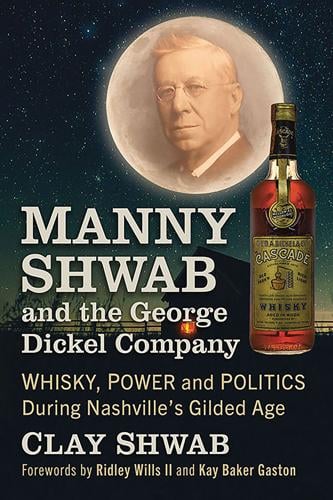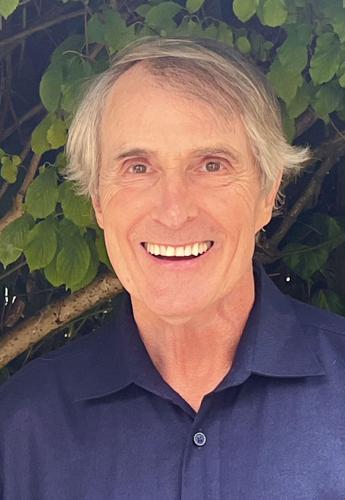Whiskey’s deep connection to history, especially in regions like Tennessee, underscores its cultural significance. But the spirits industry’s penchant for myth-making often leads to misleading narratives. Unfortunately, when those histories are not painstakingly researched or accurately told, we’ve seen several high-profile cases in which the marketing department took over the narratives.
Templeton Rye, for instance, was marketed as a product of a family recipe from Templeton, Iowa. In reality, its initial production came from a large industrial ethanol plant in Indiana. Similarly, Tito’s Vodka faced multiple class-action lawsuits for advertising itself as “handmade” despite its large-scale production. Bulleit Frontier Whiskey, with its purported family recipe and frontier legacy, was actually produced under a contract with another distillery by its founder, an attorney whose family had not been in the distilling business for generations.
Terms like “craft” and “master distiller” get thrown around loosely, so it’s important when writers take the time to really investigate the true histories of brands. Two recent books shed light on stories behind the brands and provide valuable insight into the intersection of history, culture and commerce in the whiskey industry.

Clay Shwab
The first is Clay Shwab’s Manny Shwab and the George Dickel Company: Whisky, Power and Politics During Nashville’s Gilded Age. This book explores the legacy of the author’s great-grandfather Victor Emmanuel “Manny” Shwab, an Alsatian Jew and early owner of Cascade Hollow Distillery in Tullahoma, Tenn. The second book — Love & Whiskey: The Remarkable True Story of Jack Daniel, His Master Distiller Nearest Green, and the Improbable Rise of Uncle Nearest by Fawn Weaver — details the journey of the freed slave Nathan “Nearest” Green, who taught Jack Daniel the art of whiskey making. Weaver’s account also covers her establishment of Uncle Nearest Premium Whiskey, one of America’s fastest-growing distilleries.
Both books offer narratives of overcoming adversity in the post-Civil War South. Green, despite being uneducated and propertyless, introduced the method of filtering whiskey through charcoal, a technique rooted in African traditions. Manny Shwab, meanwhile, distanced himself from stereotypes associated with Jewish merchants by dropping the “c” from his surname. By the time of his death, Shwab was a prominent Nashville figure and a key player in the whiskey industry.

Clay Shwab knew some of his family history, but local historian Ridley Wills II encouraged him to dive deeper into the records to share the rest of the narrative. Through his hard work, Clay has created a fascinatingly detailed account of Nashville life around the turn of the century. Manny Shwab was the bookkeeper at German immigrant George Dickel’s downtown Nashville liquor store. Manny and George ended up marrying sisters, living next door to each other on Dickerson Pike and even sharing a burial plot at Mt. Olivet Cemetery.
Manny became a partner in Dickel’s distillery operations in 1881, eventually purchasing a majority stake in 1888 and inheriting the rest after Dickel’s death in 1894. In a key development in the history of the distillery, Manny hired McLin Davis as distiller and coined the trademark phrase “Mellow as Moonlight” because Davis preferred to make whiskey in the cooler hours of the evening.
Known as a shrewd businessman, Shwab managed a workaround when Prohibition came early to Tennessee, striking up an arrangement with the Stitzel distillery in Kentucky to keep the brand alive and the barrels full while the company waited out the passage of the 21st Amendment. Manny earned a reputation as a firebrand through his arguments over Prohibition, picking fights with newspaper editors and politicians, and he was often accused of bribery and corruption to try to turn political winds.
But his legacy goes much further than just as a whiskey baron. Manny was the founder of multiple companies, banks and railroads that are still in operation today, and he served on the boards of local utilities and charitable organizations. He also led Nashville’s war bonds efforts during World War I.
When Shwab died in 1924, The Tennessean wrote, “Mr. Shwab won distinction as the kind of businessman who never forsook a fight in the face of opposing odds.” In a final bit of cruel fate, the Cascade Distillery burned to the ground on the same day that Shwab was interred at Mt. Olivet. Despite this, the George Dickel Distillery remains a leading force in the industry, a testament to Shwab’s enduring legacy.

Fawn Weaver
Fawn Weaver is an entrepreneur and author best known as the founder and CEO of Uncle Nearest Premium Whiskey, reportedly valued at more than $1 billion less than a decade after it was founded. History and her story brought Weaver to the whiskey business when she was fascinated by a 2016 article in The New York Times by spirits writer Clay Risen. Risen shared the rarely mentioned story about Nearest Green’s relationship with Jack Daniel, the man and the brand. Parent company Brown-Forman announced that they planned to incorporate Green’s story into their tours of the distillery, and Weaver had to go find out what this was all about.
Weaver convinced her husband Keith to accompany her on a trip to Lynchburg, Tenn., home of the Jack Daniel Distillery — over his protestations about the verb part of the town’s name. She immediately dove into the history of the Green family, meeting with multiple generations of ancestors and setting up a research room where she hired a team of researchers to delve deeper into the records.
Weaver participated in several distillery tours and heard no mention of Nearest from the guides, so she continued to press for more details. This got the attention of executives at Jack Daniel’s and Brown-Forman, and they began to reach out to her. Weaver found a compatriot in Nelson Eddy, the brand historian for Jack Daniel’s, and the pair respected each other’s dedication to fact-finding and sharing the truth. Eventually, Weaver met with the CEO of Jack Daniel’s, who assured her that Nearest Green would be an important part of any story the brand told. After some initial reluctance from longtime guides who had been telling the same (incomplete) story for years, Nearest’s legacy is now an important part of the tour script, including the fact that there has been at least one member of the Green family on the premises any time a drop of Jack Daniel’s has been produced.
Weaver didn’t undertake this effort with the intention of starting a distillery, but her enthusiasm and dedication to the Greens led her to make the jump from research into action. She raised $40 million to start up the fledgling distillery, first sourcing whiskey and then contract distilling her own product at a nearby facility in Columbia.

Weaver purchased the farm where Nearest and Jack first distilled together. But this wasn’t just a sentimental action. Uncle Nearest now has access to the same aquifer and spring where Jack Daniel’s was first made, and the company operates a massive campus near Interstate 24 where they welcome visitors for tours and events at Humble Baron, Guinness-certified record holder as “The World’s Longest Bar.”
A fundamental tenet of Uncle Nearest’s business is that the Green family is actively involved. Weaver has set up scholarship programs for Nearest’s descendants to attend school as well as support for other fledgling BIPOC entrepreneurs who are interested in the spirits business. Weaver hired Green’s fifth-generation descendent Victoria Eady Butler as the distillery’s first master blender, and the former criminologist has quickly become an important face of the business, racking up hundreds of awards for her blends.
Uncle Nearest has quite a history, but it obviously has a bright future as well. Weaver’s account of how the company got this far is a gripping read, and you have to imagine that there’s a sequel in the works.








